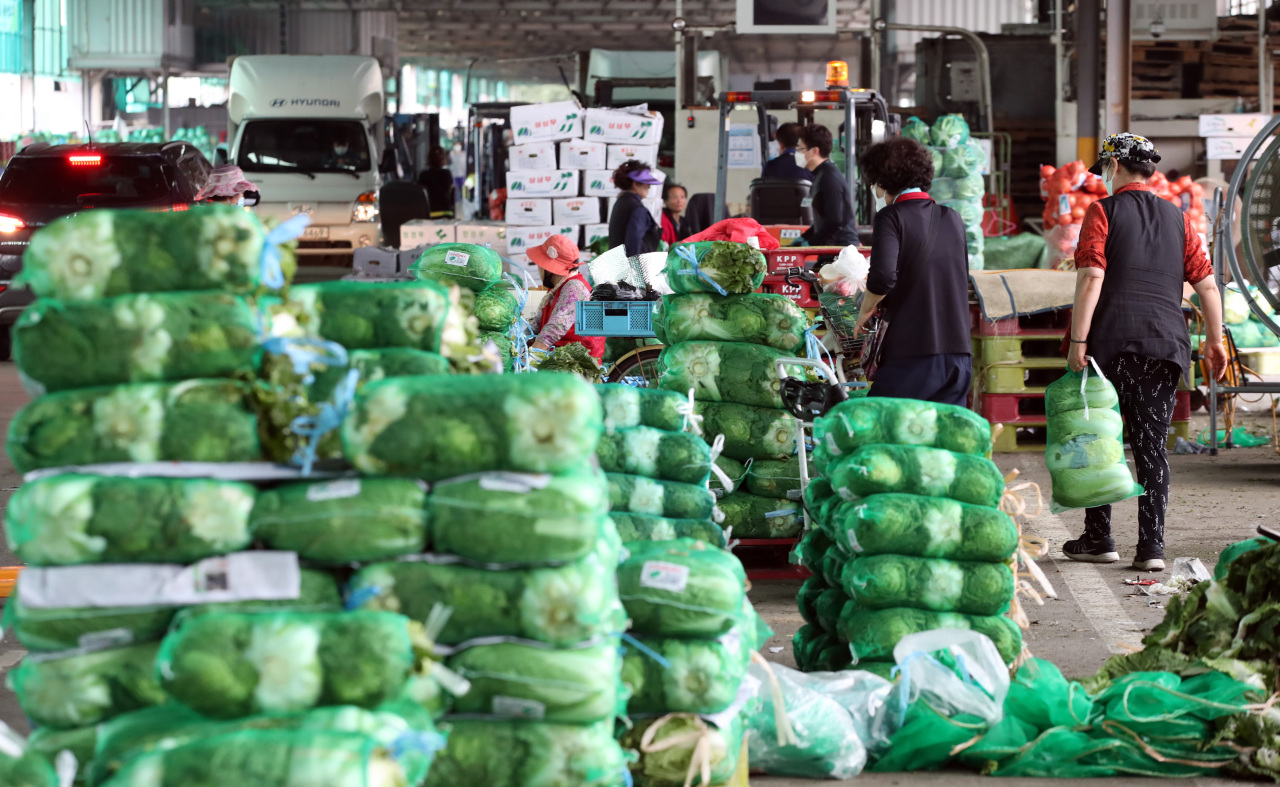Producer prices continue uptrend in August due to summer rains, typhoons
By Bae HyunjungPublished : Sept. 22, 2020 - 16:44

South Korea’s producer prices increased for the third consecutive month in August, mostly reflecting the rising costs of agricultural goods and oil products, central bank data showed Tuesday.
The inflationary trend, attributed to the record-long rainy season and typhoons, is seen as adding pressure on coronavirus-hit consumers ahead of the Chuseok holiday.
The producer price index -- an indicator of future consumer inflation -- stood at 103.19 in August, climbing 0.5 percent from a month earlier, according to the Bank of Korea.
This marked a 0.3 percentage point rise from the July figure and also the third consecutive month that the given index remained on an uptrend.
In a year-on-year comparison, producer prices slipped 0.5 percent in August following an 0.8 percent fall in July.
It was the agricultural sector that logged the steepest price hikes, reflecting the direct impact of the typhoons and rainy weather.
The prices of farm goods soared 16 percent on-month in August after the Korean Peninsula experienced a 54-day monsoon season from late June to mid-August.
Leading the inflation was the price of zucchini, which jumped 172.6 percent on-month in August, followed by the price of Napa cabbage, which logged an 80.9 percent on-month rise.
The prices of livestock and fishery products, on the other hand, shed slightly in the same period due to sluggish demand amid the rainy season and off-season factors, respectively.
The prices of industrial goods gained 0.2 percent on-month on the back of metal and petrochemical products, the BOK said, citing the benchmark Dubai crude price, which rose 1.6 percent from the previous month.
In the service sector, however, the inflationary trend remained high, with the service price index gaining 0.3 percent on-month to a record-high 107.18.
The key factors were the finance and insurance businesses, which have been gaining momentum amid the recent bullish stock market trend, the BOK explained.
Producer prices, excluding the volatile food and energy sectors, marked a 0.2 percent rise on-month in August.
Amid the COVID-19 pandemic and the consequent economic slowdown, Seoul’s central bank has cut the nation’s policy rate twice so far this year to a fresh record low of 0.5 percent as of May. In its latest rate-setting meeting in August, the bank froze the key rate, expressing concerns about snowballing household debts and heating costs.
(tellme@heraldcorp.com)
cap/ Yonhap








![[KH Explains] How should Korea adjust its trade defenses against Chinese EVs?](http://res.heraldm.com/phpwas/restmb_idxmake.php?idx=644&simg=/content/image/2024/04/15/20240415050562_0.jpg&u=20240415144419)










![[Today’s K-pop] Stray Kids to return soon: report](http://res.heraldm.com/phpwas/restmb_idxmake.php?idx=642&simg=/content/image/2024/04/16/20240416050713_0.jpg&u=)